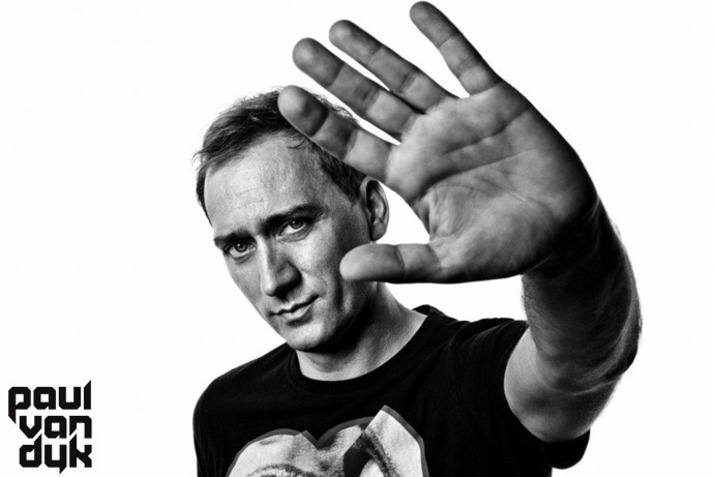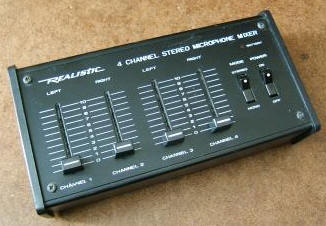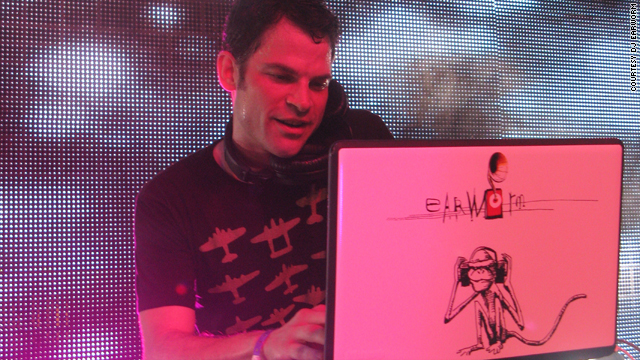
Pic: Top House Music
While doing a bit of Googling on Kid Chameleon, the electro DJ and producer wearing the Mac Plus helmet we reported on earlier today, I suddenly realised that DJing might be swinging firmly back to being the domain of geeks, nerds and a certain type of misfit. Let me immediately clarify what I’m saying. I’m certainly not saying that Kid Chameleon is necessarily any of those things (I don’t know him), and I’m not using any of those terms in a derogatory way – I have been able to relate to all 3 at many points in my life! But let’s rewind 25 years and see what being a DJ meant back then…
DJing 25 years ago…
In fact, let’s ask Paul Van Dyk: “When I started, DJs weren’t in the media, electronic music wasn’t in the sales charts,” says Paul, “and a DJ was the freak in the corner who provided the music while other people had fun.”
That’s how it was when I started, too (Paul van Dyk and I are around the same age). DJs got zero respect. We had cheesy DJ consoles bought second-hand. We had to have decent record boxes made for us because you couldn’t buy them in the shops. (The only ones you could buy were made out of cardboard, stapled together and covered in cheap, stick-on black vinyl.) While our more popular school colleagues were out drinking, getting the girls and socialising, we were stuck in our bedrooms, nobody asking us to come to parties. Instead we were taking comfort in music. Eventually we found each other and started plotting, however roughly.

DIY culture
We were physically cutting up cassette tape and sticking it back together again to make re-edits; hacking old reel-to-reels we found in car boot sales; conjuring up DJ set-ups out of reclaimed hi-fi equipment and old Tandy mono mixers (left); programming our early PCs to make the screens flash on and off to create light shows.
Of course, when the end-of-year school parties happened, we were the ones, with our banks of tape decks, domestic record players and rented PA systems, who provided the music. We got our first taste of DJing with DIY kit, and nobody was telling us the rules, because as far as we could tell, there weren’t any.
Back then, geeks, nerds and misfits with an unhealthy obsession with music were definitely the new breed of DJs, at least here in Europe. They were the ones who had (unknowingly perhaps) positioned themselves in the right place to take advantage of the cultural shift that happened when house exploded. By the 90s, they had become the Paul Van Dyks.
DJing is dead, long live DJing…
Let’s fast forward to now. DJing is multi-national, multi-million-dollar mainstream commerce. Tïesto plays the Olympic opening ceremony. David Guetta takes the underground sounds of the 90s and partners them with US pop to rule the world.

But at the same time, DJing technology means absolutely anyone can have a go now. It is easier than ever before to play records competently one after the other. DJ Hero teaches the basic timing skills. iTunes keeps all your music handy at all times. DJ controllers with everything you need to get going start at US$100 or less.
In short, everyone can be “a DJ”. It is, on the face of it, easy. That’s what gets the old school’s backs up, of course – but that’s not what this piece is about (we’ve had enough of that round here recently).
It’s more than that, anyway. The fact that DJing has gone mainstream has changed the nature of it completely. It’s why mix CD sales are non-existent nowadays. Because there’s no innovation there any more. The scene is about marketing and money more than music. It’s big business, but it’s lost something along the way.
The digital dilemma
Now, look what one reader wrote in response to our reader survey.
“I’m a 42 year old that is getting back into DJing after a 25 year layoff,” says Tim Dorcas from Canada. Modern technology has] made beatmatching really easy (that was much harder in my day). Now what? How do I do long sets? How can I incorporate FX into my mixes? How do maximise the technology now presented to me?”
Tim’s next line is the most illuminating of all: “Given that everyone now has access to most of the same resources, how can I sound ‘unique’?”
Exactly, Tim. How? Back then we made ourselves unique by hacking. Hacking together what we could find to make our DJ set-ups. Hacking together music and computers into “shows” as described above. It inspired us and make us believe something new, something exciting, something that we could create through our own endeavours, was possible with DJing. And all of this a time when DJs were seen as perm-haired, mulleted, cheesy sleaze-merchants who played in depressing chrome-and-cocktail clubs and had no relevance to us at all. We were reacting against the status quo.
So today, if you want to be the next superstar DJ, what do you do?
Program or be programmed
Maybe you hack. Maybe you’re the nerd, the geek, sat in your bedroom with a genius skill in programming and an unhealthy love of music. Maybe you’re too young to know the rules so you don’t respect them. Maybe you’re the person making mash-ups and working out how to perform them on your laptop, like DJ Earworm or Girl Talk. Maybe you’re imagining new equipment that you can make yourself, to perform what you hear in your head, like Ean Golden has.

Maybe it’s more about performance for you. Maybe you want a “digital face” to cover the one God gave you, and so you make a helmet to give you one, like Kid Chameleon, showing your own visuals to the music. Maybe you’re an artist on a mission to rescue DJing from the DJ box and take it, iPad in hand, onto the dancefloor, like AndrewAndrew. Or maybe you’re a studio engineer with a penchant for rodent helmets. Worked for deadmau5.
DJ Earworm said: “I don’t use records or CDs, and I’m such a computer geek that I don’t think I would have DJ’d before the digital era.”
Richie Hawtin also touched on it, in his recent DJTechTools interview from NAMM: “We are in the century of customisation, of personalisation, and you’re seeing that in hardware and performance style,” he said. “What the next generation knows even more than us right now is… pick and match, customise, connect it together, plug it in backwards, and create something uniquely you.”
deadmau5 was recently asked if a DJ today needs to be “more than just a DJ”.
“I’m not a DJ for a start,” he said, “And yes, if you want to get to the top you have to keep reinventing for shows.”
Back in the late 80s, we were lucky enough to get the chance to reinvent the way people perform with records, in the face of mind numblingly dull irrelevance from the establishment DJs of the day. Now, with more DJs than ever before, and a whole establishment in place hell-bent on maintaining a status quo for its own commercial reasons, are the next wave of superstar DJs really going to be pretty, market-manufactured pop-stars-with-decks? Or will they be the nerds and geeks? The kids who can write the programs, hack the kit, and who have enough of an unhealthy obsession with the music to go the extra mile to create something new, challenging and exciting?
Because if Douglas Rushkoff is to be believed, and programming is in fact the new literacy of the digital age, maybe to express ourselves we all have to “Program or be Programmed”.
Something I suspect the new breed of stand-out DJs will understand only too well.
How do you think the next generation of DJs will mark themselves separate from their peers? Do you think technology demands a certain degree of programming literacy just to tread water in the digital age? Let us know in the comments…






![Your 5 Proven Steps To DJing Like a Pro, Part 1: Gear [Summer School Podcast] Your 5 Proven Steps To DJing Like a Pro, Part 1: Gear [Summer School Podcast]](https://cdn.digitaldjtips.com/app/uploads/2024/07/18215143/summerpodcastfeat-150x150.jpg)
![Emergency Trick For Mixing Unfamiliar Songs [Free Lesson] Emergency Trick For Mixing Unfamiliar Songs [Free Lesson]](https://cdn.digitaldjtips.com/app/uploads/2024/10/28170204/instant-hotcue-freelesson-website-150x150.jpg)
![Switching From Vinyl To Digital DJing, Party Speakers & More [Live Q&A] Switching From Vinyl To Digital DJing, Party Speakers & More [Live Q&A]](https://cdn.digitaldjtips.com/app/uploads/2024/09/05200154/5-sept-blank-WEBSITE-150x150.jpg)